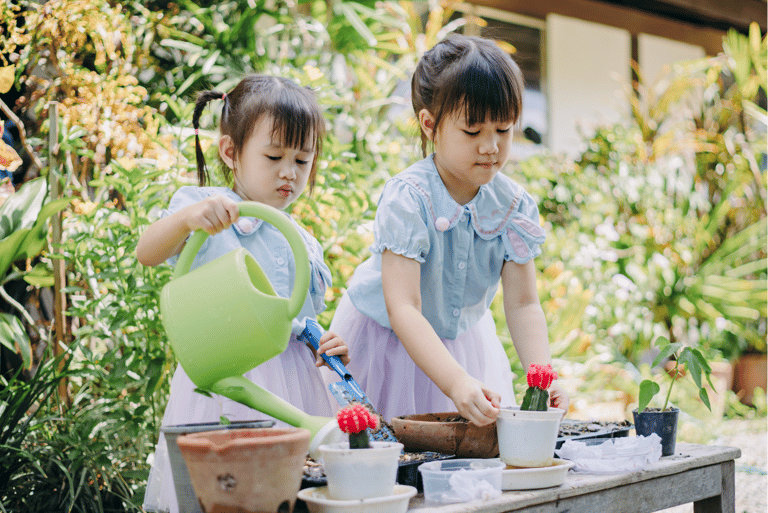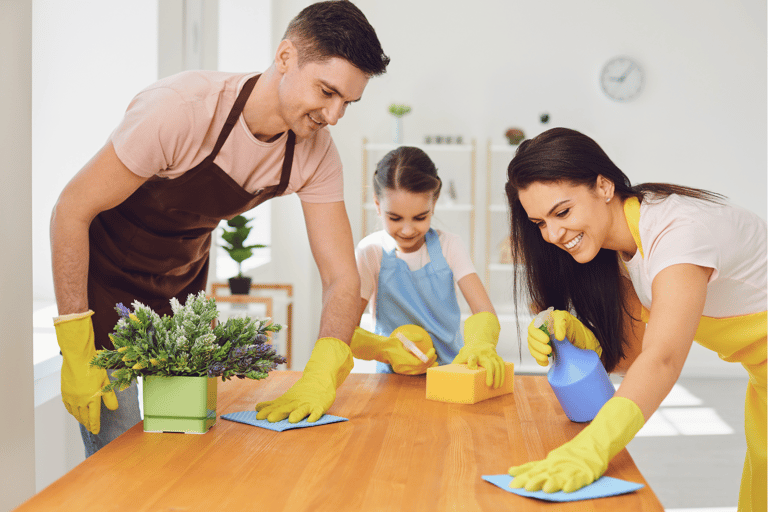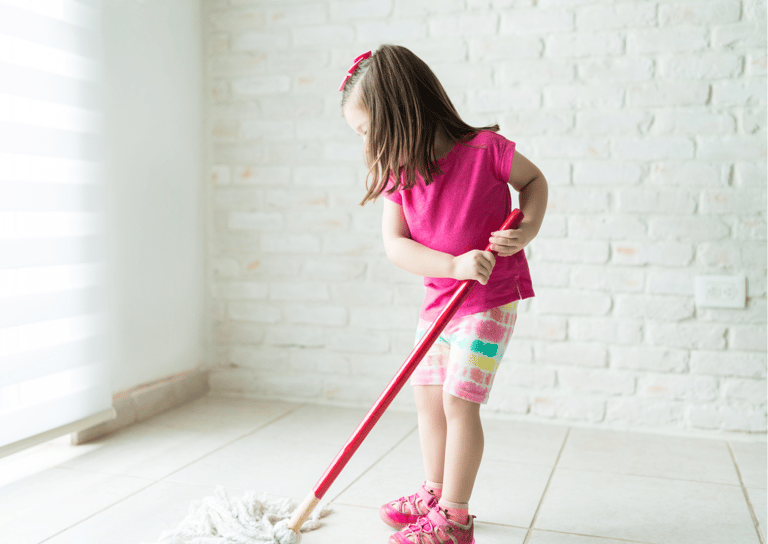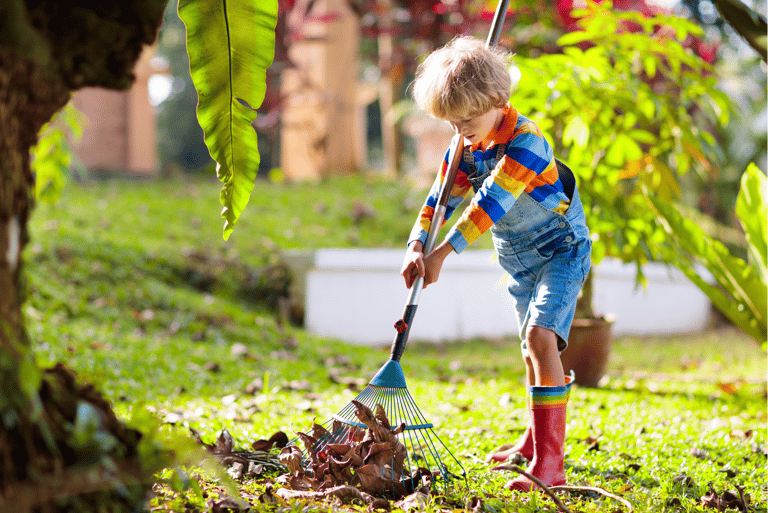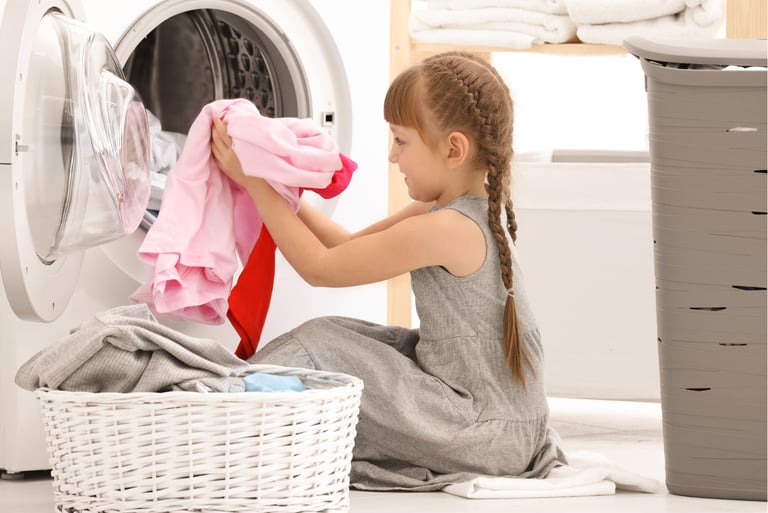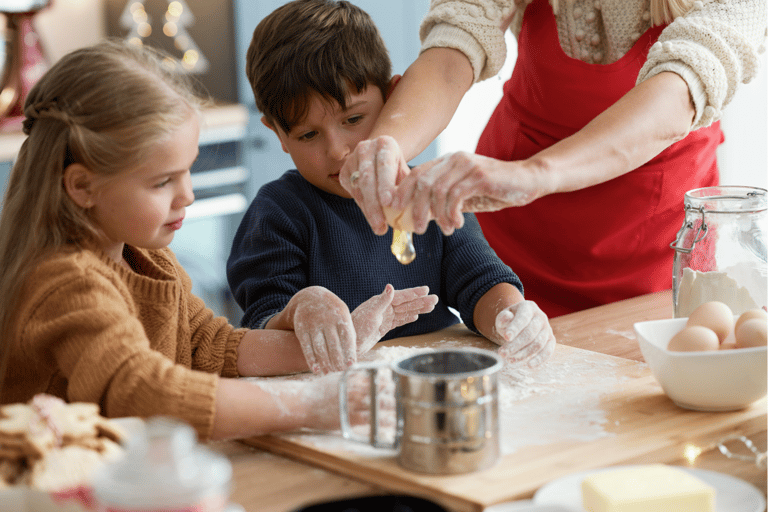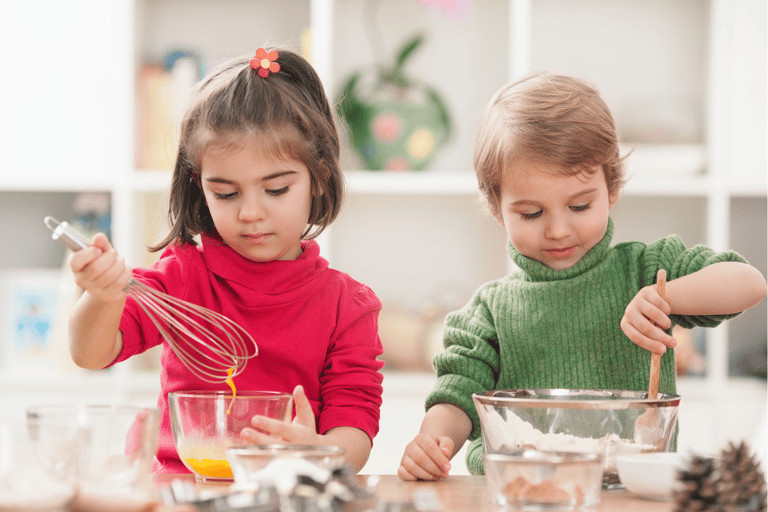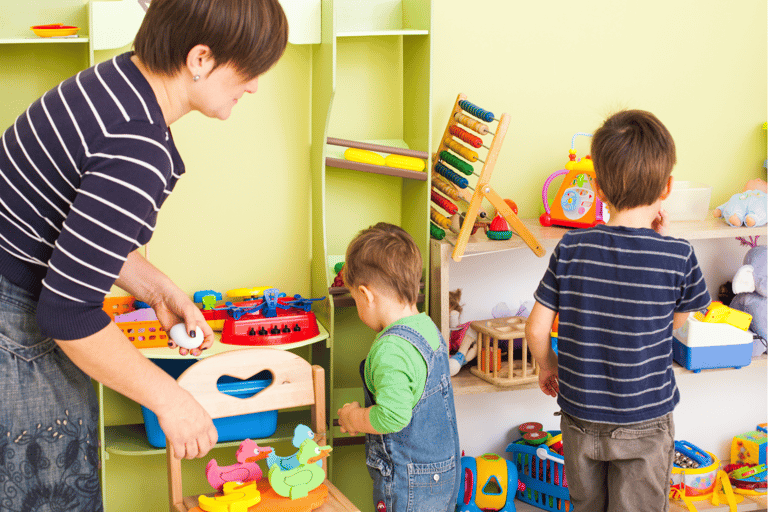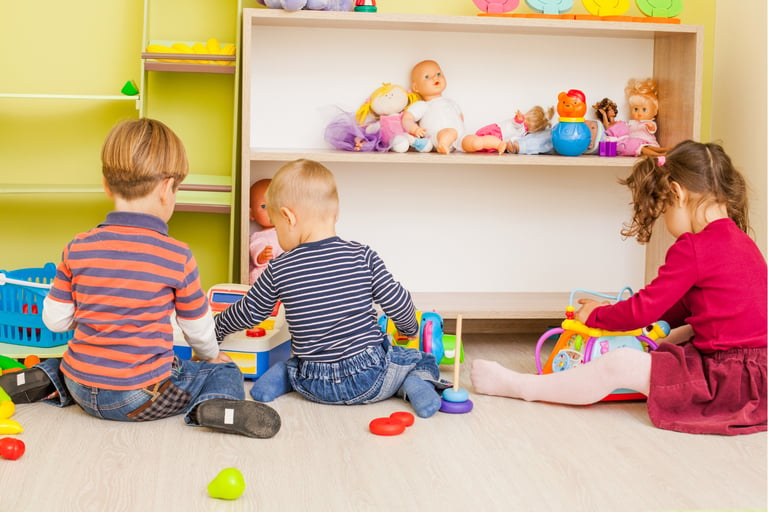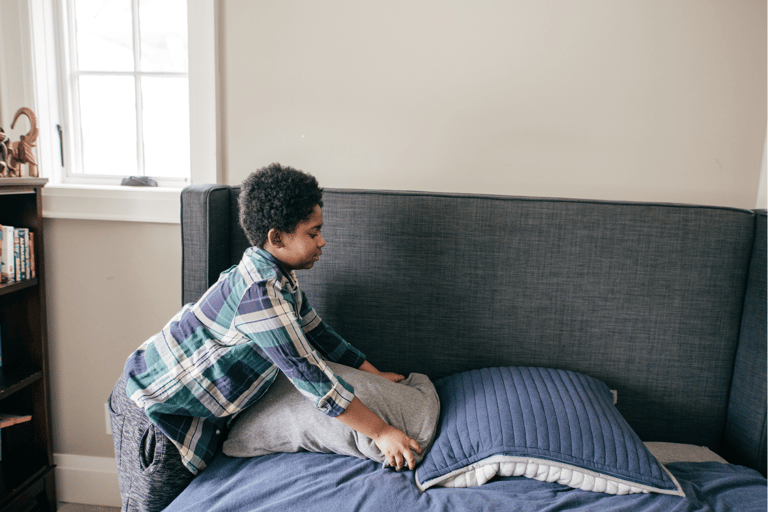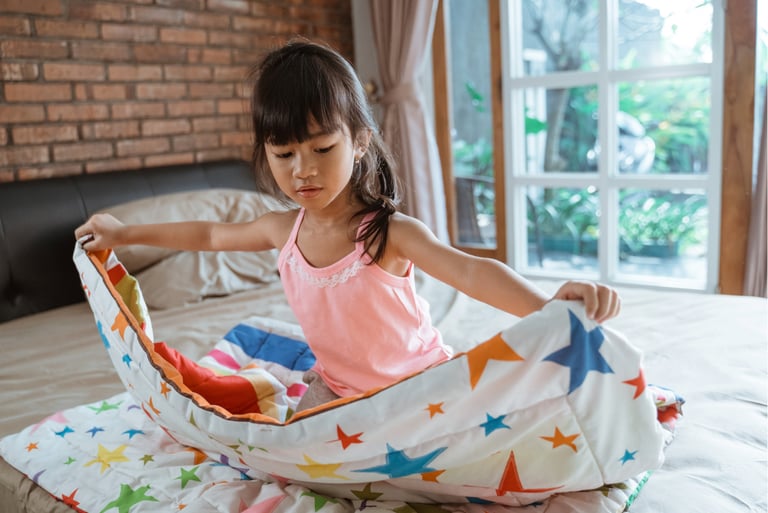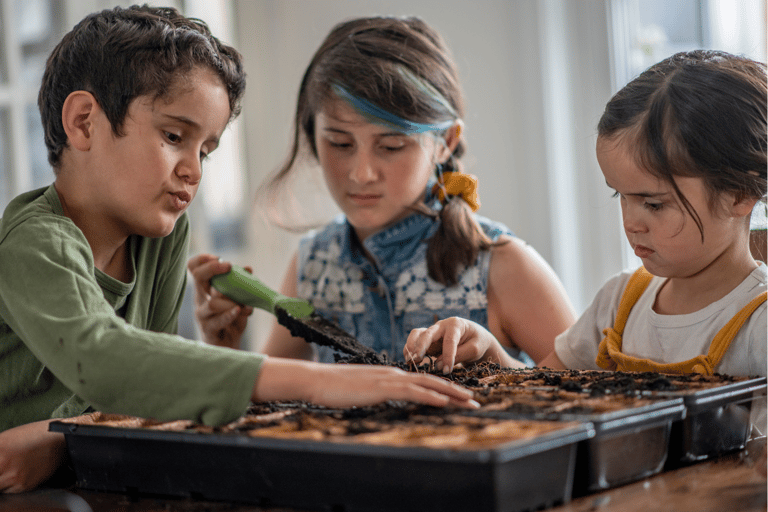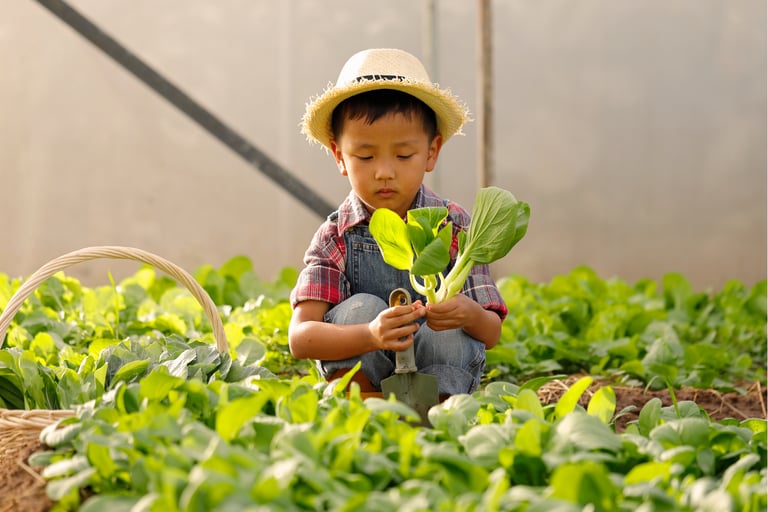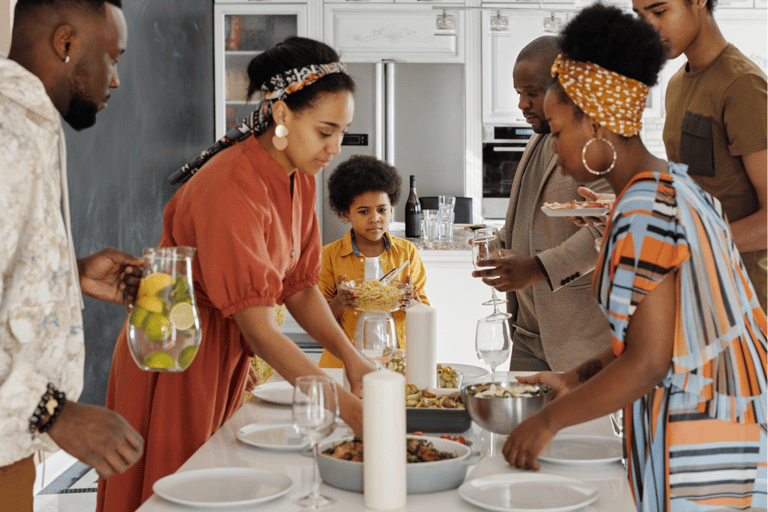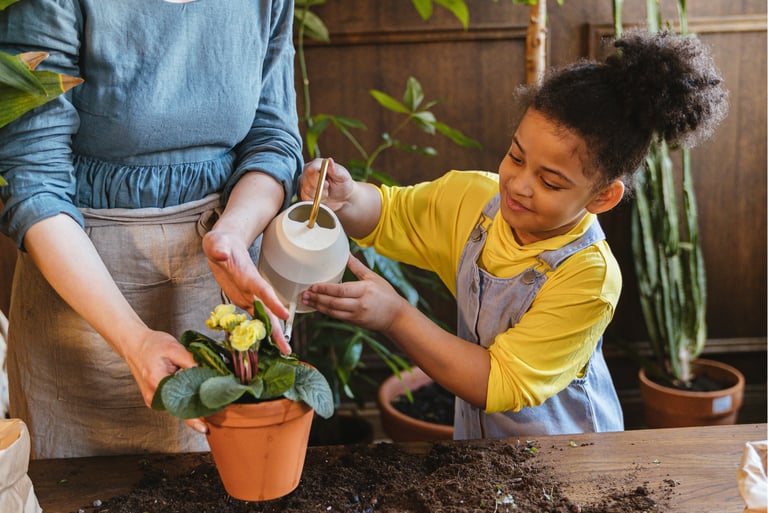Simple Household Chores to Boost Gross Motor Skills
Household chores are not just about keeping the house clean; they offer valuable opportunities for your child’s development. By incorporating these simple tasks into your daily routine, you can significantly enhance your child’s gross motor skills while teaching them responsibility and independence.
PARENTING
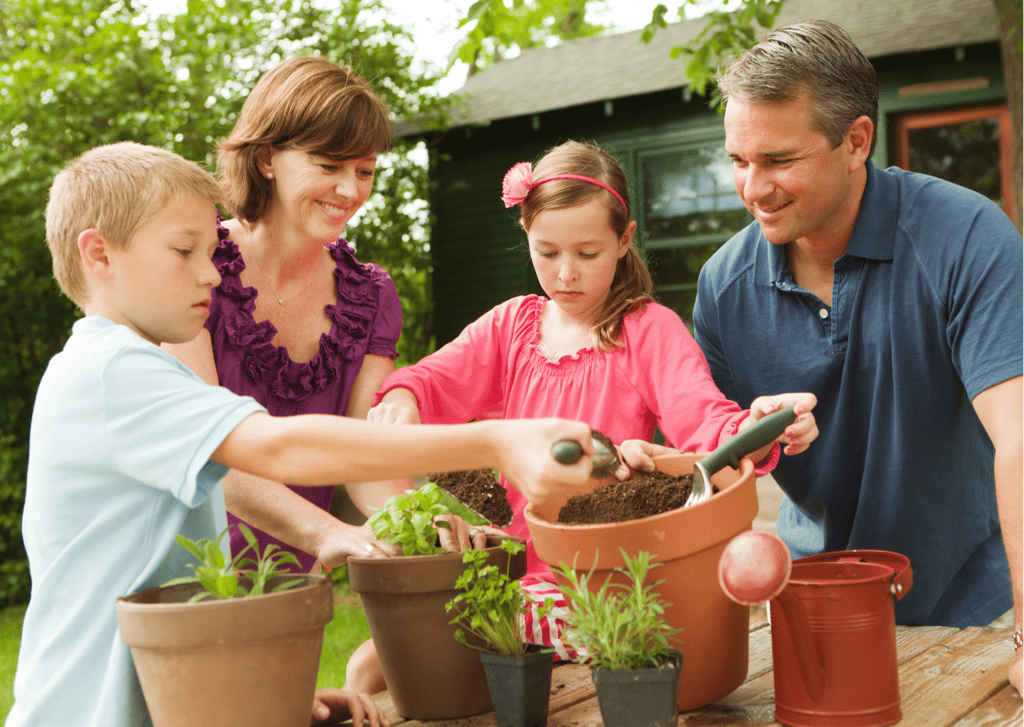

As parents, we often find ourselves juggling the demands of daily life while trying to provide the best for our children. One of the simplest yet most effective ways to support our kids’ development is through household chores. Not only do these tasks teach responsibility, but they also offer significant benefits for enhancing gross motor skills. Let’s explore how engaging your children in everyday chores can improve their physical development, backed by scientific research and try to recreate them in our daily lives.
Understanding Gross Motor Skills
What exactly are gross motor skills, and why are they important for my child?
Gross motor skills involve the large muscles in the body, such as those in the arms, legs, and torso. These skills are crucial for activities like walking, running, jumping, and maintaining balance and coordination.
Research shows that gross motor skills are fundamental for overall physical health and can influence other areas of development, including social skills and academic performance (Piek, Dawson, Smith, & Gasson, 2008). Encouraging activities that enhance these skills can lead to better health outcomes and improved self-esteem in children.
Chores that Enhance Gross Motor Skills
1. Sweeping and Mopping
How can sweeping and mopping help in developing my child’s gross motor skills?
Sweeping and mopping require the use of large muscle groups and coordination, making them excellent activities for improving strength and balance.
Child-Sized Tools: Provide your child with appropriately sized brooms and mops.
Fun Challenges: Turn sweeping into a game by setting a timer and seeing how much they can clean up within a set time.
Positive Reinforcement: Praise their effort and progress to keep them motivated.
When my cousin Ridhi noticed her three-year-old son, Pranav, trying to mimic her sweeping, she decided to get him his own child-sized broom. They now have a daily “clean-up dance party,” where they sweep and mop to their favorite songs. Pranav’s coordination and strength have noticeably improved, and he loves helping out.
Simple Household Chores to Boost Gross Motor Skills in Toddlers and Kids
2. Gardening
Can gardening really help my child’s physical development?
Yes! Gardening involves various physical activities such as digging, raking, and carrying water, which engage multiple muscle groups and improve motor skills.
Kid-Friendly Tools: Equip your child with small, safe gardening tools.
Plant Together: Let them help plant flowers, vegetables, or herbs.
Watering Duties: Assign them the task of watering plants regularly.
Wells, Myers, & Henderson, 2014 approves in his publication that gardening not only enhances physical health by promoting movement and coordination but also has been linked to improved mental health and cognitive function.
As a family spend your weekends in your garden. No worries if you don’t have one, start small with a balcony or window sill garden. Instill the love for planting seeds and watering the flowers in your little one by starting early. This routine not only improves gross motor skills but also will spark a love for nature.
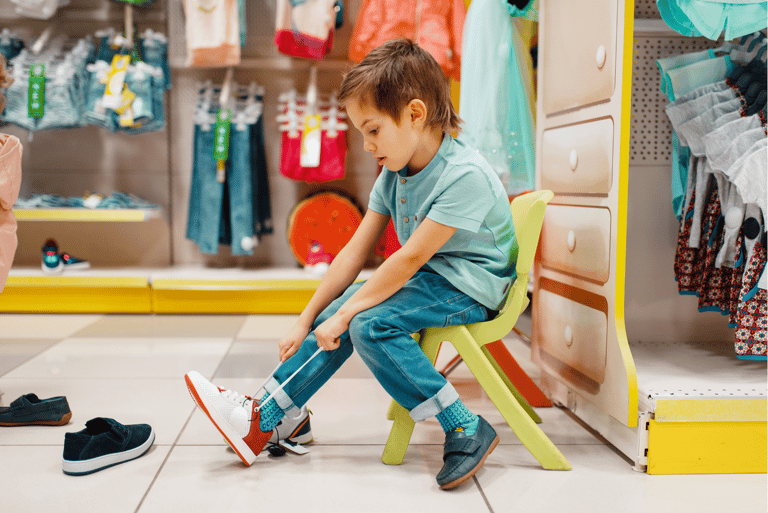

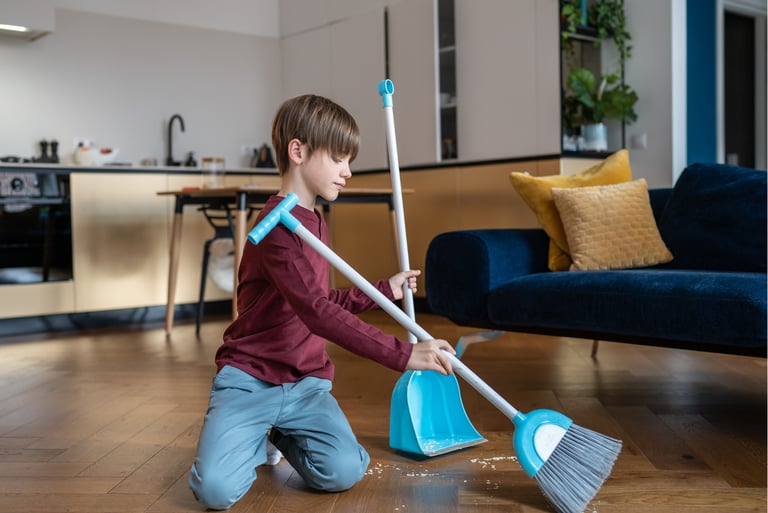

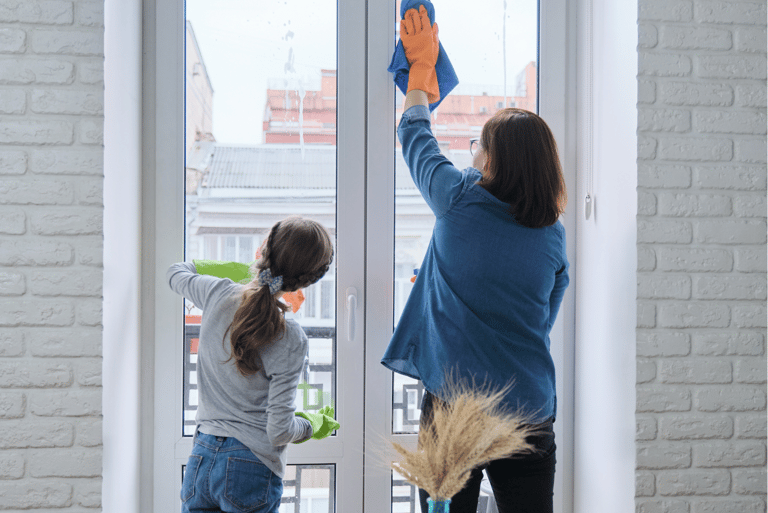

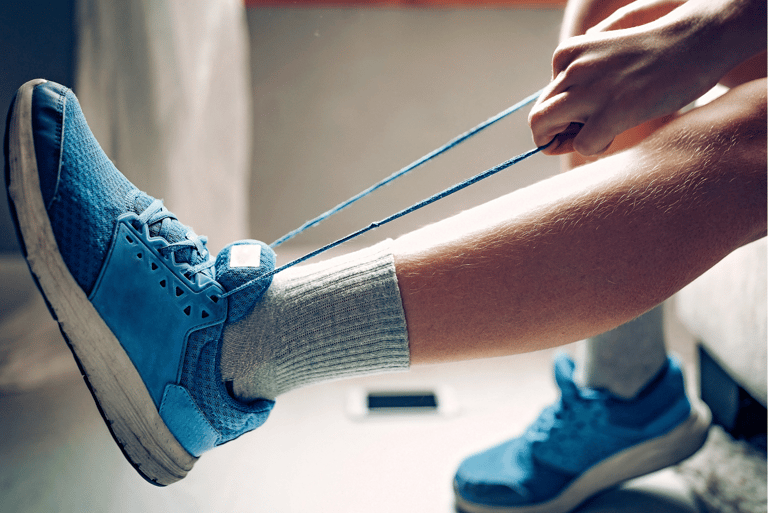

3. Laundry
Can doing laundry be beneficial for my child’s development?
Yes, Laundry tasks such as carrying laundry baskets, loading the washer, and folding clothes involve lifting, bending, and fine motor coordination, which are great for developing gross motor skills.
Light Loads: Give them small loads of laundry to carry.
Sorting Games: Turn sorting clothes by color or type into a fun game.
Folding Practice: Teach them to fold simple items like towels and socks.
Every Saturday, involve your kid in doing the laundry. Kids would love sorting the clothes and feel proud when they successfully fold their own clothes. These activities ensure the strengthening of muscles and helps in better coordination.
4. Cooking and Baking
Isn’t cooking too dangerous for toddlers and young kids?
With proper supervision and age-appropriate tasks, cooking can be a safe and fantastic way to enhance gross motor skills.
Stirring and Mixing: Let your child help with stirring and mixing ingredients.
Kneading Dough: Involve them in kneading dough for bread or cookies.
Pouring Ingredients: Teach them to pour ingredients carefully.
This is not a mere theory, research paper publication by Fulkerson et al., 2011 supports by saying that Involvement in cooking tasks not only improves physical skills but also encourages healthy eating habits and provides educational benefits, such as learning measurements and following instructions.
During weekends, enjoy baking together. Any kid would love mixing the batter and using cookie cutters. These activities enhance their hand-eye coordination and arm strength, and also develop a love for cooking.
5.Tidying Up Toys
Does tidying up toys contribute to gross motor skill development?
Yes, that’s true! Tidying up toys involves bending, reaching, and lifting, which engage various muscle groups and improve coordination.
Toy Boxes and Shelves: Place storage boxes and shelves at a reachable height for your child.
Sorting Games: Turn tidying up into a sorting game, asking them to group toys by type or color.
Cleaning Routine: Establish a regular cleaning routine to make it a habit.
After playtime, have a tidy-up race. They see who can put away the most toys in five minutes. This fun activity will improve gross motor skills and make tidying up an enjoyable part of their routine.
6. Making the Bed
Can making the bed really help with motor skills?
Yes! Making the bed requires lifting, pulling, and coordination, which are great for developing gross motor skills.
Simple Tasks: Start with simple tasks like straightening the pillows and pulling up the blanket.
Model and Assist: Demonstrate the steps and assist your child until they can do it independently.
Encouragement: Praise their efforts and celebrate their independence.
Every morning, encourages your little one, to make their bed. Kids start by straightening their blanket and arranging pillows. This daily chore is the best bet to instill a sense of responsibility along with coordination.
7. Setting the Table
Setting the table involves carrying dishes, placing utensils, and arranging items, which engage various muscle groups and improve hand-eye coordination.
Lightweight Items: Start with lightweight and unbreakable items.
Routine: Make setting the table a part of your child’s daily routine.
Praise and Reward: Encourage and praise their efforts to keep them motivated.
Before dinner, request your tiny tot to help set the table together. Kids would love placing the napkins and utensils. This task has a dual benefit of better coordination and also give them a sense of contribution to family meals.
8. Watering Plants
Watering plants involves lifting and carrying watering cans, which help in developing arm strength and coordination.
Small Watering Cans: Provide small, manageable watering cans for your child.
Routine Tasks: Assign watering plants as a regular task.
Observation: Teach them to observe when plants need water.
Every evening, You and your kid can water the garden together. Kids love carrying a small watering can and taking care of the plants. This activity is a sure shot to strengthen their little arms and improve coordination.
9. Dusting
Does dusting contribute to physical development?
Yes, it does! Dusting requires reaching, stretching, and wiping, which are great for developing upper body strength and coordination.
Child-Sized Dusters: Use child-sized dusters and cleaning cloths.
Interactive Cleaning: Turn dusting into a fun activity by playing music and dancing while cleaning.
Praise and Encouragement: Always praise your child’s efforts to keep them motivated.
Plan a weekly dusting day. Your boy or girl might loves using his or her feather duster and reaching for different surfaces. This activity is the best to improve the arm strength and make cleaning fun.
10. Organizing Shoes
How can organizing shoes help my child’s motor skills?
Organizing shoes involves bending, lifting, and arranging, which engage various muscle groups and improve coordination.
Designated Spot: Create a designated spot for shoes that is easily accessible to your child.
Sorting Game: Turn organizing shoes into a sorting game by color, size, or type.
Daily Routine: Make it a part of their daily routine to keep shoes organized.
After coming home, ask your little one to organize their shoes together. Any kid would enjoy sorting the shoes by size and placing them neatly. This task will surely improve his or her coordination and sense of order.
Household chores are not just about keeping the house clean; they offer valuable opportunities for your child’s development. By incorporating these simple tasks into your daily routine, you can significantly enhance your child’s gross motor skills while teaching them responsibility and independence.
